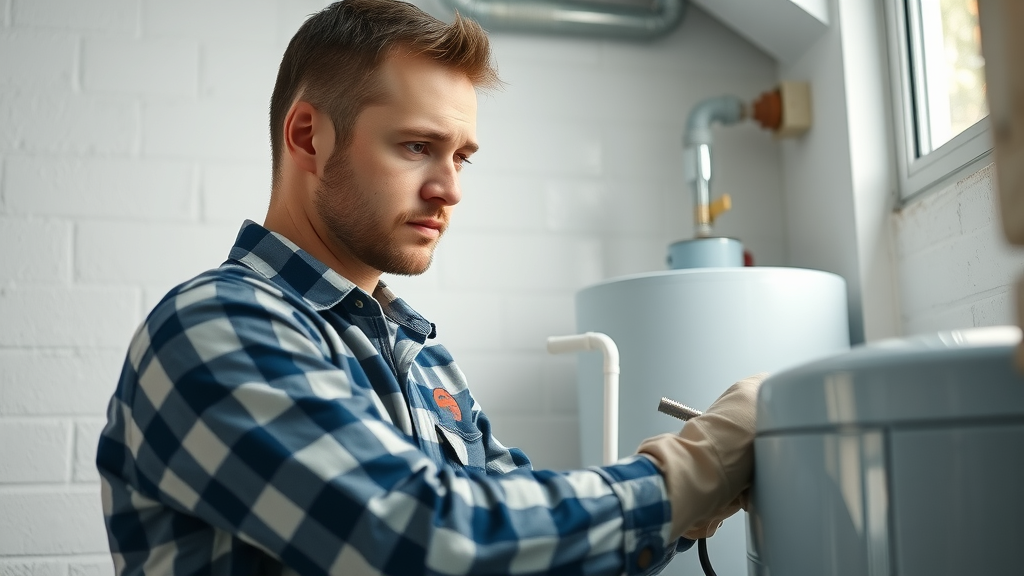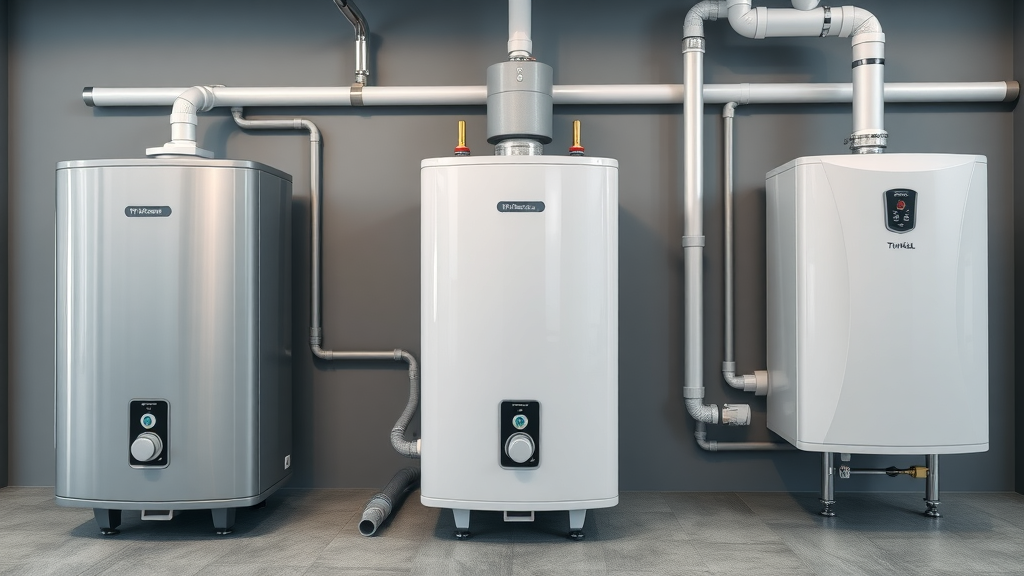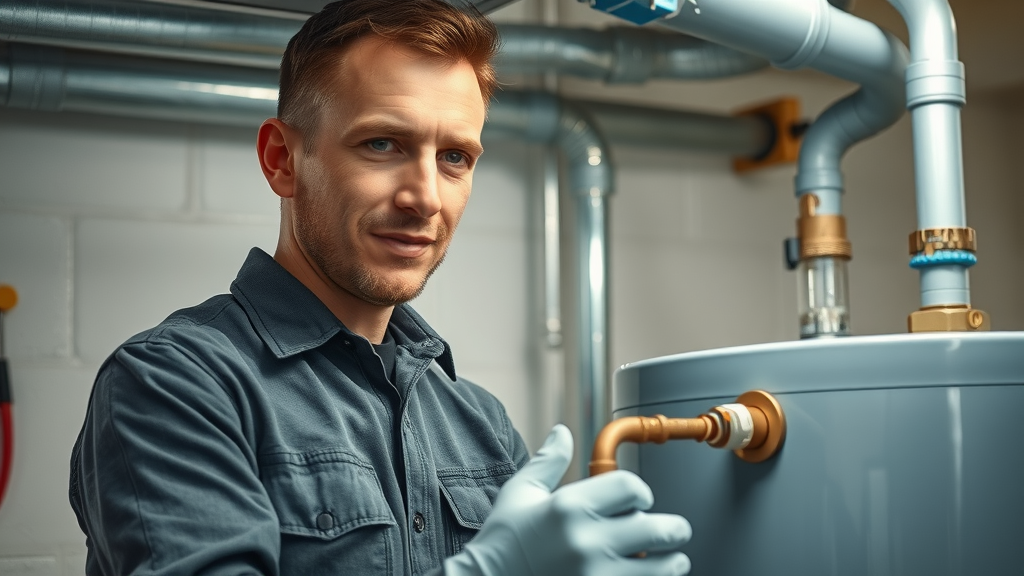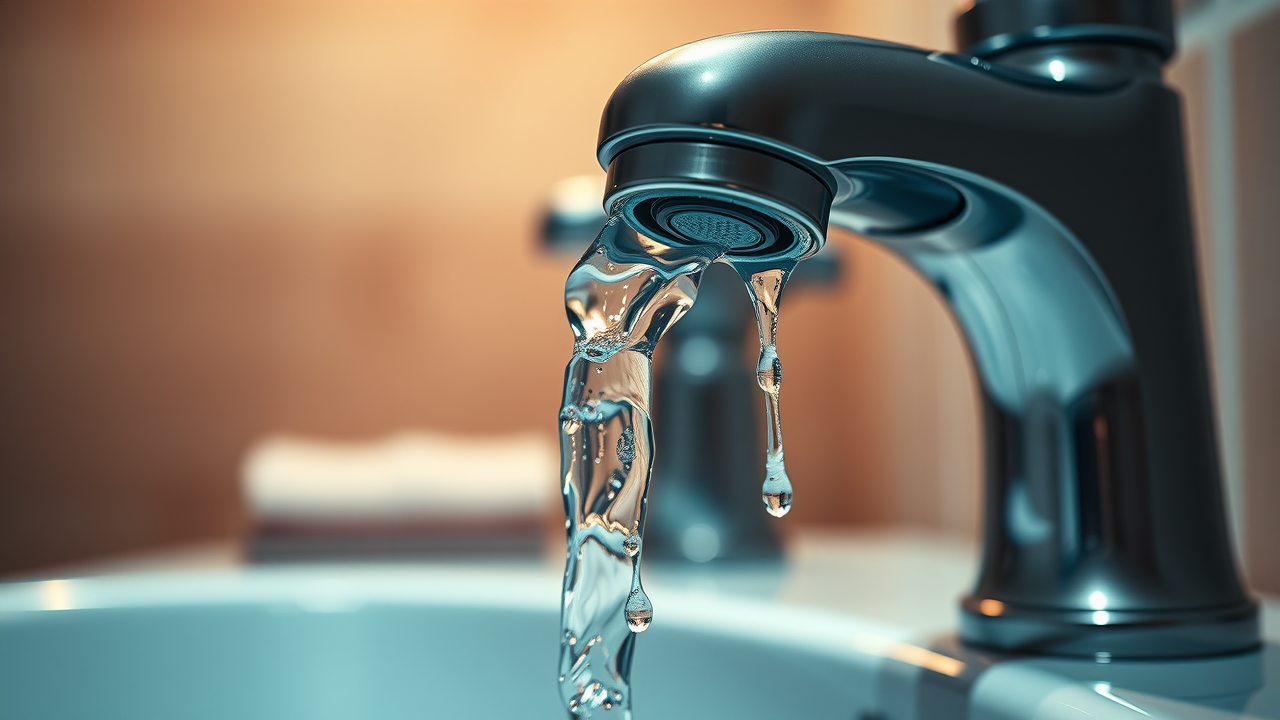Did you know that nearly 27% of water heaters fail before their 10th year, causing thousands in property damage and energy waste every year? Whether your mornings have been disrupted by icy showers or you’ve found a mysterious puddle pooling in your basement, water heater installation is not just about comfort—it’s about protecting your home. In this comprehensive, easy-to-follow guide, you’ll uncover surprising industry facts, insider tips, and step-by-step insights into choosing, installing, and maintaining a reliable hot water system. If you’re replacing a water heater or upgrading to a heat pump water heater, you’ll find the answers you need to make a confident, hassle-free decision and achieve comfort, efficiency, and savings for years to come.
Shocking Water Heater Installation Facts You Need to Know
- Eye-Opening Statistic: According to the Insurance Institute for Business & Home Safety, water heater failures are among the top five causes of residential water damage, averaging over $4,000 in losses per incident.
- Outdated or improperly installed water heaters are energy hogs. The Department of Energy reports that residential water heating can account for up to 18% of a home’s energy consumption. That means an old or inefficient unit, or one without compliant safety measures like correct seismic strapping or discharge line routing, could quietly cost homeowners hundreds each year.
- Failing to use a licensed professional for water heater installation often results in voided warranties, overlooked supply line leaks, and may even put your home at risk of local code violations and insurance claim denials.
What You'll Learn About Water Heater Installation and Modern Solutions
- The key benefits of professional water heater installation, ensuring safety, compliance with local code, and peace of mind.
- How heat pump water heaters and pump water heater technology dramatically improve energy efficiency.
- Cost expectations and variables for water heater installation, including traditional and hybrid water heater options.
- Answers to frequently asked questions about hot water systems tailored to your household needs.
- Why expert installation is crucial for the longevity and safety of your hot water system.
Why Professional Water Heater Installation Is Essential
- Risks of DIY water heater installation: Attempting to install a water heater yourself can be tempting, especially with online tutorials only a click away. However, improper setup of a pump water heater, misconnected supply line, or failure to properly secure the unit with seismic strapping can lead to leaks, inefficient operation, or even hazardous carbon monoxide exposure for gas models.
- Common problems with improper pump water heater setup: DIY installations often overlook critical components like the discharge line, pressure relief valve, or proper condensate line drainage. This can result in performance inefficiencies, premature unit failure, and costly water or property damage down the road.
- Legal code and safety concerns: Hot water appliance installation is subject to local code requirements, including proper venting, seismic retrofitting in certain states, and minimum clearance standards. Non-compliance may mean your home fails inspection or insurance claims get denied after a water incident.
“A reliable water heater installation is an investment in home safety and comfort.” – Local Heating Expert

Types of Water Heaters: Traditional, Heat Pump Water Heaters, and More
- Traditional tank water heaters are the most common, storing cold water in a large tank and heating it with gas or electricity. While affordable upfront, these systems can be energy-inefficient, especially as they age or if they lack modern cold water inlet technology.
- Heat pump water heaters and pump water heaters are newer, high-efficiency options that use electricity to move heat from the air or ground rather than generating it directly. Hybrid water heaters combine heat pump technology with traditional heating elements, providing reliable hot water even during peak demand.
- Tankless water heaters rapidly heat water as needed, without storing it, offering potentially unlimited hot water and significant space savings. Advanced mixing valve controls and durable water inlet and outlet connections are hallmarks of modern tankless units.

How a Heat Pump Water Heater Revolutionizes Your Hot Water Experience
- Energy efficiency: Heat pump water heaters can cut your water heating costs by up to 60% compared to traditional electric resistance water heaters. They pull heat from the surrounding air, using less energy to produce the same or greater volume of hot water.
- Environmental and utility savings: By reducing reliance on fossil fuels and operating efficiently even in moderate outdoor temperatures, heat pump water heaters lower your carbon footprint. Improved insulation, robust water inlet and discharge line systems, and integrated condensate lines all contribute to their superior performance.
- Is this technology right for every home? While highly efficient, heat pump water heaters work best in spaces that stay between 40°F–90°F year-round and require adequate space for airflow. They may not be ideal for very cold climates or small closets unless paired with a hybrid water heater setup.
Step-by-Step Guide to Professional Water Heater Installation
- Initial Assessment & Selection: Choose the right type of water heater (tank, heat pump water heater, hybrid, or tankless) to fit your home’s water supply and usage habits. Factoring in local code requirements, available space, and the condition of supply lines or cold water inlets ensures a smooth installation.
- Preparation: A professional will begin by shutting off your home’s water supply and the power (or gas) feeding the old system. They lay down protective materials and check the water inlet for leaks or sediment buildup before proceeding.
- Safe Removal of Old Unit: Drain the tank (using the drain pan if available) and disconnect the water line, supply line, and any discharge line or gas venting. Special attention is given to mitigating cover damage and removing seismic strapping safely.
- Precise Installation: The new unit is positioned, allowing for all manufacturer clearance recommendations and local code compliance. Water inlet and hot connections, mixing valve adjustments, and secure condensate line setup (for heat pump water heaters) are completed with tested accuracy.
- Testing the System: Once installed, the system is carefully filled with cold water, air is bled from the supply line, and the unit is powered on. Hot water output, correct pressure relief operation, and leak-free joints are all carefully checked.
- Final Inspection & Clean-Up: A licensed installer will review all connections, ensure the area is spotless, and provide an installation report and maintenance tips to maximize your heater’s service life.
Water Heater Installation Cost Breakdown: What to Expect
- Factors that impact costs: The size of your new water heater (40 vs. 50 gallon), type of technology (standard tank, heat pump water heater, or pump water heater), location within your home (easy or complex access), and any necessary upgrades (such as new supply lines or seismic strapping) all affect price.
- Material and labor costs: Traditional electric or gas water heaters are generally less expensive to install, while heat pump/hybrid water heaters and tankless water heaters may cost more due to required specialty components like condensate lines. Labor from licensed pros ensures water supply safety and future local code compliance.
- Long-term savings: Investing upfront in an energy-efficient water heater can result in hundreds of dollars in yearly utility savings, fewer emergency repairs, and added value to your home.
How much will it cost to install a new water heater?
- Costs are influenced by: Water heater size (measured in gallons), technology used (tank, heat pump, tankless), the complexity of supply and cold water inlet connections, home accessibility, and local code standards. Installation for a standard tank water heater might range from $850 to $1,800 (including material and labor). Upgrading to a hybrid or heat pump water heater can range between $1,800 and $3,500 but can save significant money in the long run on hot water costs.
- Value for professional installation: Not only does an expertly installed system guarantee optimal performance, but it also protects your warranty and ensures all safety measures like seismic strapping and proper discharge line routing are met.
How much does Lowe's charge to install a water heater?
- Big box store rates: Lowe’s typically charges an average of $850 to $2,000 for a water heater installation (varies by location, heater type, and additional services such as disposal or permit acquisition). A standard tank or heat pump water heater may cost more if additional upgrades or adjustments to the water supply line are needed.
- Benefits and drawbacks: While these services are convenient, be aware that contractors may not always focus on custom, home-specific solutions. A local pro can tailor the water heater installation to your property’s exact needs, ensuring compliance with every aspect of local code and potential future upgrades.
What is the average labor cost to install a 50 gallon gas water heater?
- Industry average labor rate: For a 50-gallon gas water heater, labor typically runs $500–$1,000, depending on regional rates and complexity (e.g., venting, water supply line replacement, or seismic upgrades). Adding a hybrid or heat pump water heater with condensate lines may raise both materials and labor costs.
- Complexity for advanced models: Heat pump water heaters often require specialized training and longer installation times, which can make total water heater installation costs higher. However, these models provide impressive ongoing savings on your energy bills.

Signs You Need a New Water Heater Installation
- Common failure signs: If your water heater is making loud popping or rumbling noises, delivers rusty or discolored hot water, or suffers from frequent leaks around the drain pan, supply line, or base, it may be time to consider a replacement.
- Inconsistent or insufficient hot water: Fluctuations in water temperature, reduced hot water volume, or visibly corroded water inlet pipes are all indicators your system may be failing. Aging units are especially prone to these issues and may not be compatible with current energy or local code standards.
- Timely replacement restores reliability: Prompt installation of a new water heater not only boosts comfort but also protects your home from water damage, keeps utility costs down, and ensures ongoing hot water supply for your household.
Water Heater Installation FAQs
- What is the most energy-efficient water heater type?
Currently, heat pump water heaters and hybrid water heaters lead the industry for efficiency, delivering up to three times more energy per dollar compared to standard electric resistance or tank water heaters. Choosing a system with robust water inlet and mixing valve controls can further optimize performance. - How long does it take to complete a water heater installation?
For a straightforward replacement, a professional installer can complete the job in 2–4 hours. Complex installations involving a pump water heater or hybrid model, or upgrades for seismic strapping and expanded water supply line, may require half a day or more. - Are heat pump water heaters suitable for cold climates?
These units perform best where ambient temperatures stay above 40°F. For colder spaces, a hybrid water heater (combining heat pump and electric resistance technology) offers improved reliability without sacrificing efficiency. - Do new pump water heaters come with warranties?
Yes, most pump water heaters and heat pump water heaters come with warranties ranging from 6–12 years. Professional installation is often required to ensure coverage isn’t voided due to improper setup.
Key Takeaways for Hassle-Free Water Heater Installation
- Professional water heater installation protects your investment and your home.
- Modern solutions like pump water heaters and heat pump water heaters deliver ongoing energy savings and reliable hot water.
- Plan for code compliance, safe operation, and choose experienced local pros for best results.
Ready for Reliable Hot Water? Your Next Steps
- Call us today if you are experienceing a plumbing emergency - 714-290-7401
Conclusion: For comfort, efficiency, and peace of mind, turn to professional water heater installation and enjoy hot water—hassle-free.
Sources
- https://www.energy.gov/energysaver/water-heating – Example Site
- https://www.ibhs.org/risk-research/to-tank-or-not-to-tank/ – Example Site
- https://www.lowes.com/l/kp/water-heater-installation-service – Example Site
When considering water heater installation, it’s essential to understand the associated costs and the importance of professional services. The article “How Much Does Water Heater Installation Cost? (2025)” provides a comprehensive breakdown of installation expenses, including factors like unit type, size, and regional variations. This resource can help you budget effectively for your new water heater. (thisoldhouse.com)
Additionally, the “Water Heater Installation Basics” guide from The Home Depot offers step-by-step instructions for those interested in the installation process. It covers essential topics such as obtaining permits, removing the old unit, and setting up the new water heater, ensuring a safe and compliant installation. (homedepot.com)
If you’re serious about ensuring a safe and efficient water heater installation, these resources will provide you with the necessary information and guidance.

